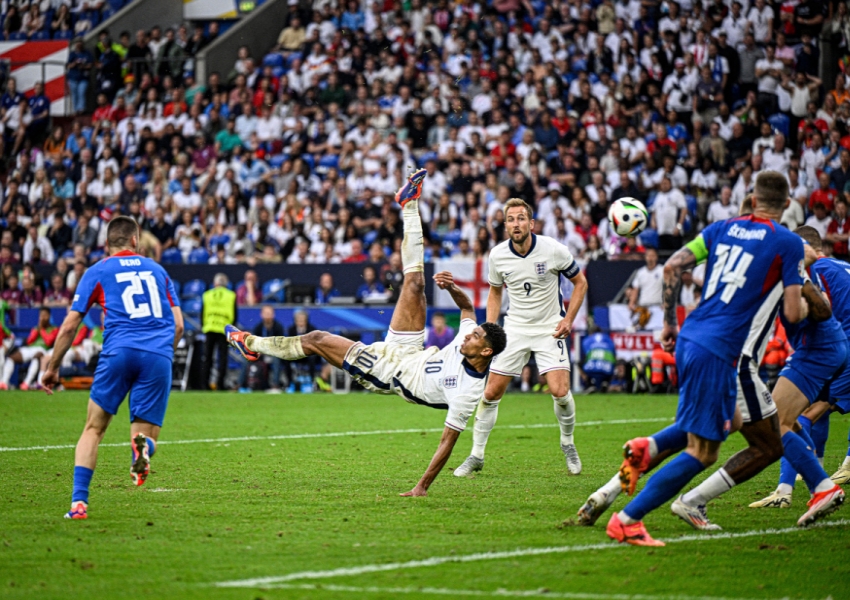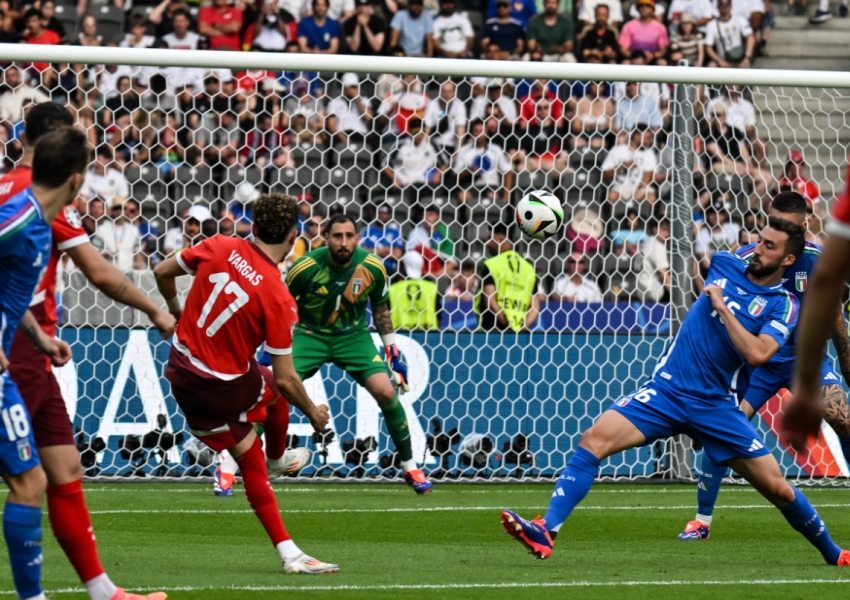UEFA Euro Quarterfinals: England’s Substitution Mastery and Lessons for the Netherlands from Germany’s Downfall
The UEFA European Championship quarterfinals continue on July 7, with both England and the Netherlands facing significant challenges. England, criticized for their uninspired tactics, much like France, has nonetheless made it this far. Manager Gareth Southgate, similar to Didier Deschamps, has shown a knack for using substitutions to turn games around—a crucial skill in knockout stages. Meanwhile, Germany’s head coach Julian Nagelsmann’s insistence on using Kai Havertz, who performed well in only 20% of matches, led to their disappointing exit. Will Netherlands coach Ronald Koeman’s persistence with Memphis Depay yield similar results?

England vs. Switzerland - Is Southgate Really That Bad?
England has reached the quarterfinals amidst heavy criticism. The Three Lions were already questioned during the group stages for not fully unleashing their attacking potential, and the knockout stage performance did little to change that perception. Against Slovakia, England appeared to be the lesser team, with Slovakia showing more effective attacking play. Before England conceded, Slovakia had a clear one-on-one chance but squandered it, a recurring theme in this Euro as players seem too exhausted to capitalize on opportunities.

England paid the price for their nervousness when Slovakia, with a simple header, broke through their defense. When Schranz entered the box, his marker Guehi reacted too late, even slightly tripping Schranz, which could have easily resulted in a penalty. Despite a stumble, Schranz managed to score from close range, leaving goalkeeper Jordan Pickford no chance to save. From that point on, England was in pursuit, necessitating strategic substitutions. The introduction of Cole Palmer improved England’s passing and dribbling, while Ivan Toney bolstered the central attacking force. Jude Bellingham’s acrobatic equalizer and Toney’s assist to Harry Kane in extra time turned the game around, highlighting Southgate’s effective use of substitutes.

Switzerland, in their round of 16 match, faced a lackluster Italy. The defending champions showed no decisiveness in counterattacks, lacked urgency in defense, and were plagued by mistakes and disunity, indicating a lack of desire to play for coach Luciano Spalletti. The only consistently performing Italian player was Zaccagni, whose cuts inside caused some trouble for the Swiss defense. Switzerland, however, excelled at defending set-pieces, often winning the first ball against Italy’s corner kicks.
England’s advantage over Switzerland appears overwhelming. Even if England starts passively, they are expected to leverage their individual talents and substitution strategies effectively. Switzerland’s forwards, on the other hand, might struggle to find opportunities against a generally solid English defense.
Netherlands vs. Turkey - Is Persistence Damaging?
The Netherlands delivered their best performance of the tournament in their round of 16 match, dominating Romania for over an hour and securing a 3-0 victory. Romania started strongly but failed to capitalize on their advantage, unlike Slovakia against England. Cody Gakpo’s individual brilliance opened the scoring, and Romania’s game fell apart thereafter. Substitute Donyell Malen sealed the win with two late goals, both showcasing Gakpo’s creative playmaking abilities. Malen’s brace helped the Dutch move past the pain of a previous own goal in the group stage.
Turkey, facing Austria in the round of 16 without their captain Hakan Çalhanoğlu, found a new hero in young midfielder Göker Külekci. His two corner kicks led to defensive chaos for Austria, allowing center-back Merih Demiral to score twice, securing a 2-1 win. However, Demiral’s controversial goal celebration earned him a two-match suspension, casting doubt on his availability for the rest of the tournament. Can coach Vincenzo Montella’s strategies bridge the gap in player quality against stronger teams?
Koeman’s reliance on Depay mirrors Nagelsmann’s faith in Havertz. Germany’s insistence on fielding an underperforming Havertz contributed to their downfall. Turkey, having lost 6-1 to the Netherlands in their last competitive encounter, faces an uphill battle. That defeat in the Euro qualifiers led to Montella’s appointment. While the Dutch team’s quality exceeds Turkey’s, Montella’s tactical acumen could narrow the gap. Turkey might perform at 20% of their potential, while the Netherlands could see a 10% dip in their attacking prowess once Depay is substituted.
Tactical Insights and Potential Game Changers
The winter break allowed teams to rest, strategize, and fine-tune their tactics. For England, Southgate's strength lies in his ability to make impactful substitutions rather than in his overarching game plans. His decision-making under pressure, particularly in swapping players to inject energy and creativity into the squad, has proven to be a game-changer.
For the Netherlands, Koeman’s strategy will be under scrutiny. The team’s success against Romania showcased their potential, but Koeman’s decisions regarding player persistence could make or break their campaign. Depay, while talented, has had inconsistent performances, and Koeman must be willing to adapt if things go awry.
Key Players and Their Roles
For England, Harry Kane’s role as the leading striker remains pivotal. His ability to find the net, combined with his experience and leadership, makes him indispensable. Jude Bellingham’s dynamic presence in midfield provides both defensive solidity and attacking flair, crucial for England’s progression.
In Switzerland, the experienced Granit Xhaka will be central to their midfield operations. His leadership and ability to control the tempo of the game will be vital against a robust English midfield.
The Netherlands will rely heavily on Cody Gakpo’s creativity and goal-scoring ability. His knack for breaking through defenses and setting up goals will be crucial. In defense, Virgil van Dijk’s leadership and defensive prowess will be essential in keeping Turkey’s attackers at bay.
Turkey’s hopes will rest on the shoulders of young talents like Göker Külekci, whose set-piece delivery has been instrumental. Without Demiral, the Turkish defense will need to step up collectively to withstand Dutch pressure.
Anticipated Outcomes and Future Prospects
As the quarterfinals approach, both matches promise to be exciting encounters. England’s strategic use of substitutions could once again play a decisive role. Southgate’s ability to read the game and make timely changes might just edge them past Switzerland.
The Netherlands, with their superior squad quality, will be favored against Turkey. However, Koeman’s tactical flexibility and willingness to make tough decisions regarding key players like Depay will be crucial. The lessons from Germany’s exit should serve as a warning against blind persistence.
Fans can expect high drama, tactical battles, and moments of individual brilliance as the teams vie for a place in the semifinals. The outcomes will not only shape the immediate future of these squads but also have lasting impacts on the careers of their coaches and key players. The UEFA Euro quarterfinals are set to deliver football at its finest, with every match a potential classic in the making.
Copyright Statement:
Author: mrfootballer
Source: Mrfootballer
The copyright of this article belongs to the author. Reproduction is not allowed without permission.
Recommended Blog
- Misfortune-Stricken Inter Controversy: The Troubled Star Nears Collapse But Encounters a Touching Scene
- FA Cup Third Round: Chelsea's Urge for Victory and Aston Villa's Stronger Bench
- A-League Round 11: Melbourne Victory's Veteran Striker Shines, Brisbane Roar's Roar Turns to a Whimper
- Inter Faces Juventus' Transfer Interception Again: Executives Stand Firm on One Key Principle
- Primeira Liga Round 16: Sporting CP Aims to Maintain Perfect Home Record, Porto's High Point Collection Efficiency
- Inter Milan's True Workhorses Rival Acerbi and Darmian: Key Declines and a Golden Opportunity for Young Talent
- La Liga New Year's First Round: Barcelona Miss Ter Stegen, Sevilla's New Coach Hopes to Reverse Home Slump
- La Liga Round 19: Real Madrid's Stability and Girona's Sustained Offensive Efficiency
- Inter Milan's New Wingback: A Data-Driven Report on Buchanan's Strengths and Weaknesses
- La Liga Round 19: How Will Real Sociedad's Attack Fare in the New Year? Valencia Seeks Stability Amidst Turmoil
Hot Blog
- English Media: Manchester United Will Win Premier League Title in 2028! History Will Repeat Itself, Two Teams Serve as Inspirations
- 0-2 Double Defeat! China National Team Stuck at 6 Points: No More Direct World Cup Hopes, Two Crucial Matches Ahead
- 4 AM Showdown: Barcelona's Revenge Match! Win = 3-Point Lead Over Real Madrid, Key Players Rested
- China National Football Team Drops 13.6 Points, Slips to 94th in FIFA Rankings: Syria Overtakes, New 9-Year Low
- 0-0 Draw! Japan 12 Shots, 2 Missed One-on-Ones: 8 Matches, 20 Points, Group Winner, Saudi Arabia Stuck at 10 Points in 3rd
- 4-1, Double Win Over Brazil! Argentina Celebrates: World Cup Qualification Secured, 4th Team Globally to Qualify
- Real Madrid Got Lazy: 7 Kilometers Less Running in UCL! Two Superstar Spectators While Barça Outruns Them All
- United Go for Glory: Unbeaten in 10, Fueled by Kobbie Mainoo’s Return, Red Devils Eye Europa League Crown
- Champions League Classic: Barça’s Midfield Maestro Worshipped by Thousands After 11.5KM Marathon
- Champions League Semifinal Odds: Barça at 99%, Real Madrid’s Hopes Dwindle to 6%, PSG Cruise Ahead